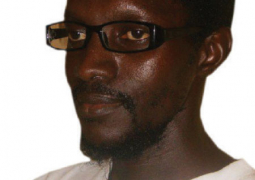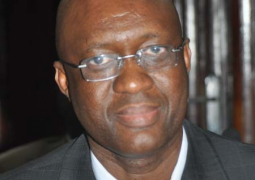Applicable knowledge, considered to be the most effective means for local empowerment and community self-sustained development, must be accessible to all segments of our societies to assure a better quality of life, says UTG lecturer Ismaila Ceesay.
Speaking recently at the Francis DeGaulle Njie Foundation’s second Motivational Lecture, where he presented a paper on the theme of the event: Importance of University Education – Studying at UTG, Mr Ceesay said: Conversely, improving local capacities at less privileged communities is essential to promoting individual and collective self-managed skills and self-esteem that facilitate the needed conditions to assure accepted per capita standards of living and national development in general.”
Community engagement is the quintessence of the three main academic functions of a university: teaching, research and community service, the UTG seasoned lecturer avers.
Participation in community service usually involves a degree of personal sacrifice in terms of time.
“Inevitably, as community work involves working with other people, it helps you better understand these people,” Mr Ceesay said.
“A crucial element of this is the ability to understand yourself so that you can easily communicate and understand the people you are trying to help; whether it is tree planting or radio debates, community service helps to develop your leadership and other personal skills.”
Doing community work also helps the young person to think and act beyond self-interest and personal gain; as it continues to motivate someone to do something positive for the community.
Such self-less community servers have a chance to develop a sense of responsibility for the community in a way that would not be possible if they were not a part of it, working for it, and supporting it directly.
“Accordingly, the UTG has endeavoured to strategizing effective responses to these broad and challenging societal needs,” Mr Ceesay said, adding that to effectively meet the challenges of the 21st century, universities should not only aim at developing civic leaders but also at producing productive citizens who can play a critical role in their societies.
The UTG aims at playing a significant role in the promotion of local empowerment for self-sustained development by contributing to ensure the exchange of differential levels of relevant knowledge among members of the community and to evaluate the social impact of this engagement, the UTG lecturer stated.
“Service-learning offers a unique opportunity for them to get involved in a tangible way by integrating community service projects with academic activities,” Mr Ceesay said, adding: “Service-learning engages students in the educational process, using what they learn in academia to solve real-life problems.”




